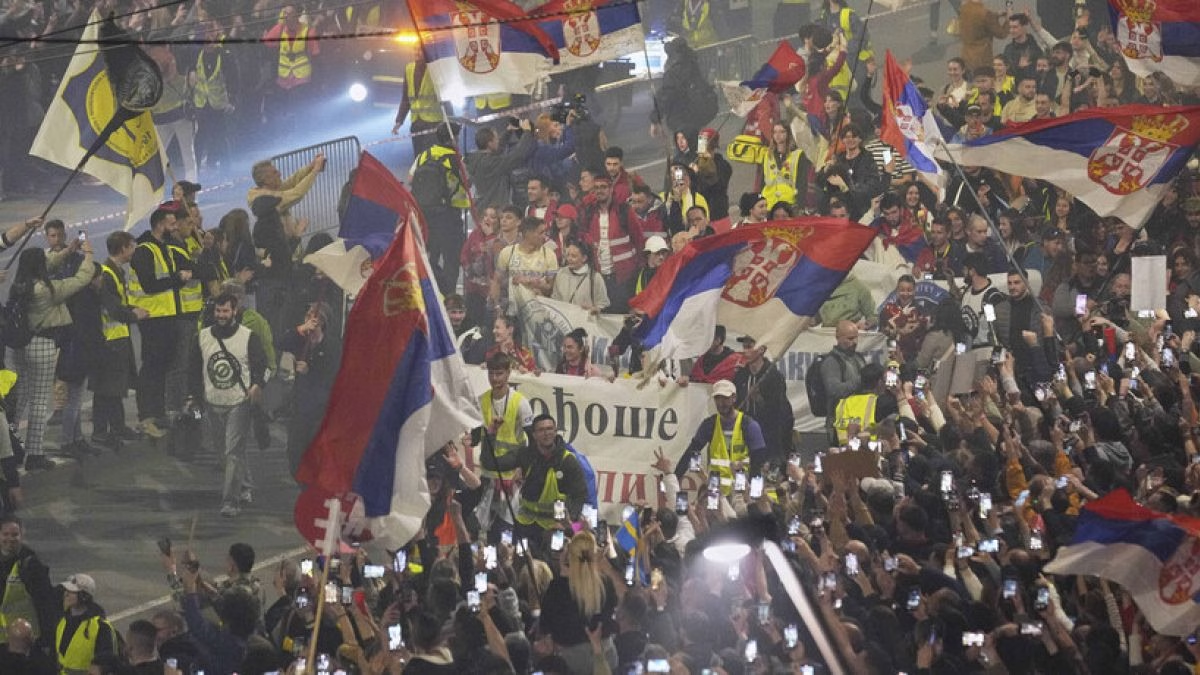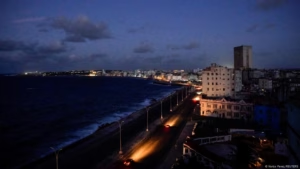In the Serbian capital of Belgrade, a large number of inhabitants gathered in anticipation of a significant anti-government protest scheduled to take place during the weekend against the populist President of Serbia, Aleksandar Vučić.
Belgrade was on edge as thousands joined a preliminary gathering ahead of a major anti-government protest scheduled for Saturday, targeting President Vucic.
University students from all over Serbia came together to support the rally planned for Saturday, which marks the culmination of months-long anti-corruption demonstrations—the biggest challenge Vucic’s government has faced so far.
Protesters wielded flags, sang slogans, and illuminated flares and fireworks in central Belgrade—a scene contrary to the fear-mongering narratives propagated by Vucic’s supporters, aimed at deterring attendance at Saturday’s assembly.
The authoritarian leader has repeatedly asserted that Western intelligence services are behind the protests planning to topple him. He also promised to prevent any violence at the rallies, threatening those involved with legal consequences.
The anti-corruption movement, spearheaded by students, emerged after the collapse of a concrete canopy at a train station, which tragically killed 15 people over four months ago.
A day after a suspected recording of opposition activists discussing their actions was showcased on pro-government channels, six activists were arrested on suspicions of plotting against the constitutional order and national security.
“The Serbian state will do everything to protect peace,” Vucic declared. “Those who disrupt the tranquility will face arrest and severe punishment.”
Previous student-led protests in other Serbian cities have remained peaceful, attracting substantial crowds.
Tensions escalated when Vucic’s supporters established a camp outside the presidential building in Belgrade, including former paramilitary members. The camp was reinforced by tractors on Friday.
As a precaution, the parliament building across the street was locked for three days due to security concerns, and railway and bus services to Belgrade were halted.
In response to the rising tensions, the EU mission in Serbia stated that “freedom of assembly is a fundamental right” and called for the safety of both protesters and institutions, emphasizing the importance of avoiding violence.
Despite being a candidate for EU membership, Serbia’s governing populists have faced criticism for curtailing democratic freedoms while bolstering ties with Russia and China.





